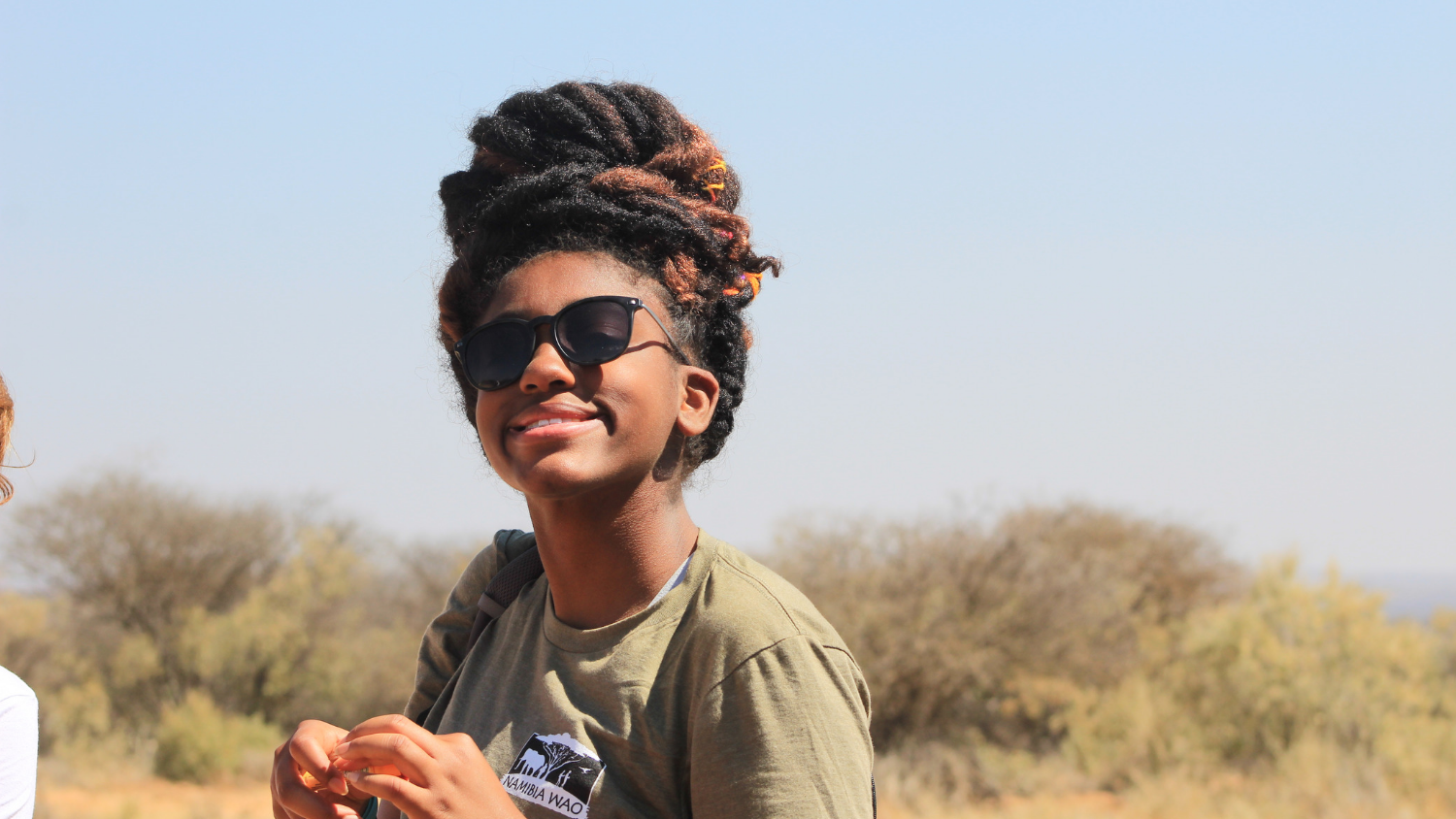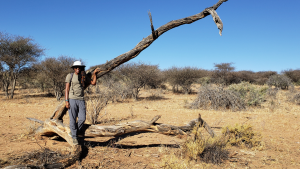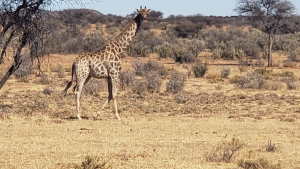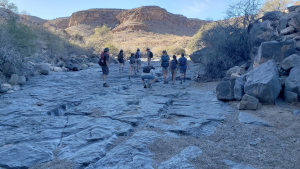Meet Zebria Hicks

Program and Location:
Fall, Namibia: Wildlife Aerial Observatory; Naankuse Wildlife Sanctuary, Namibia
Major/Minor:
Zoology
Why did you choose to study abroad?
I really fell in love with this particular program and the way that it married the fields of aerospace and mechanical engineering with zoology, which don’t usually intersect. It gave those participating the opportunity to learn a bit more about each field.

What did you learn about yourself?
While in Namibia, I learned that I’m just as much an introvert as I am an extrovert. While studying I learned that it’s important for me to find a balance between the two. I would have a really hard time enjoying new experiences if I didn’t take time to rest and recharge with some alone time every once in a while.
What was one of your favorite parts of your program?
My favorite part of the program was being able to volunteer at N/a’an ku se. I got the opportunity to walk with baboons, help make food for the animals, and clean enclosures. I truly enjoyed getting hands on experience in my field, especially with animals that I may not have been able to get so close to otherwise. In addition to this, I got the opportunity to volunteer at Neuras, a winery owned by the same people. While at Neuras, I got the chance to hike through mountains and diverse Namibian landscape.

What advice do you have to future study abroad students?
I would tell other students planning to study abroad to just relax and enjoy their experience. It can be hard when you’re getting ready to leave and you’re worrying about if you’ll like where you’re living or if you forgot to pack something and so on. But what I found was when I just relaxed and enjoyed the moment, everything else fell into place.
How did your study abroad experience prepare you for your future career?
I think that my study abroad experience prepared me for my future career because it put me in an environment similar to the field that I will one day join. While in Namibia, I was sleeping in a cabin in the arid savanna, approximately forty-five minutes from the nearest city, which is a very realistic possibility for someone who wants to perform field work. I was able to shadow and work with the veterinary staff and get a feel for what their every day jobs are like. It really made me think about what I want to do in the future.
In what ways did your identity have an impact on your experience abroad?
It was very interesting to be in Africa as a Black American. On multiple occasions, I was approached by people who spoke to me in many different languages expecting me to understand. This caused me to feel strange, as if I didn’t fit in with either culture I was expected to.

Is there any advice you would give to other students who share your identity?
I would tell other students that share my identity to be prepared for anything. The customs and culture are different everywhere. And though it may be something that we view as unacceptable in the United States, it may be viewed differently in other parts of the world.
Where did you find support to navigate any challenges you faced abroad?
I relied greatly on my friends and family. I scheduled times to talk on the phone with people back home, especially if I was having a particularly challenging day.
Would you do it again?
I would absolutely study abroad again and in fact, I am! I will be studying abroad as an exchange student at the University of Adelaide in the Spring of 2019. The preparation for Adelaide has been much more individual than preparing for Namibia was. This is largely due to the fact that Namibia WAO is a faculty-led program in which much of the preparations were made for me. However different, I think that going to Namibia still prepared me for getting ready for Adelaide all on my own.
- Categories: